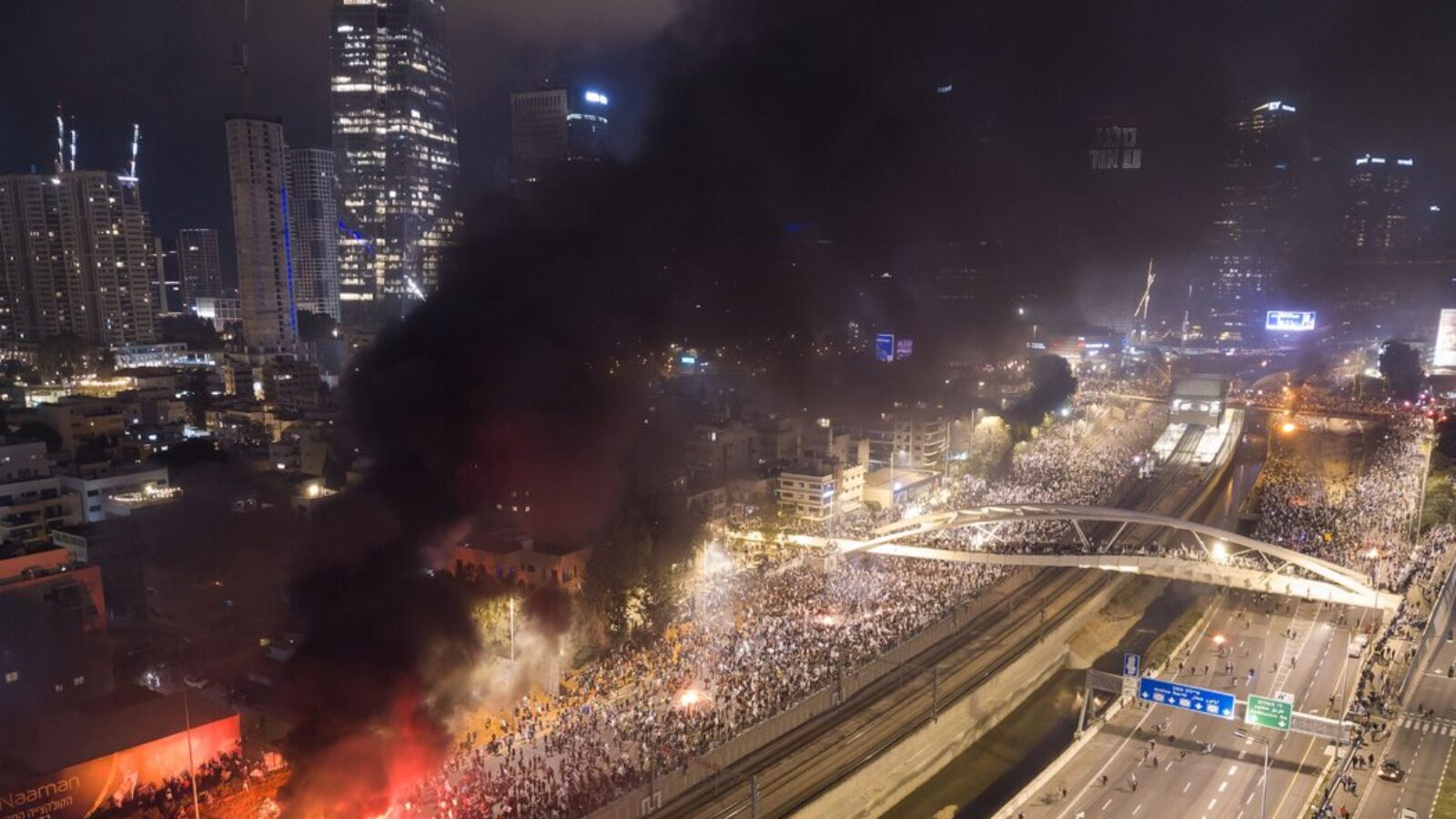Chaos is breaking out in Israel after months of massive protests have left the nation on edge. Since the start of the year, hundreds of thousands of protestors have taken to the streets, demanding an end to Prime Minister Benjamin Netanyahu’s controversial judicial reforms and his resignation. Activists say the new reforms will strengthen Netanyahu’s power and remove the courts’ power to keep the central government in check, but supporters of the Prime Minister say that reform is overdue and necessary. Despite the protests and army reserve members boycotting their duties, Netanyahu has been defiant, accusing the opposition of attempting to overthrow the government. Netanyahu is now delaying the judicial overhaul plan, pausing after unprecedented strikes and protests have overtaken the country.
BBC: Israel judicial reform: Why is there a crisis?
By Rffi Berg; March 27, 2023
What is happening in Israel?
Since the start of the year, huge weekly protests have been held by people opposed to the government’s reform plans. The scale of the protests has escalated, with hundreds of thousands of people packing the streets in Tel Aviv – Israel’s commercial capital – and other towns and cities across the country.
Protesters have called for the reforms to be scrapped and for the Prime Minister, Benjamin Netanyahu, to resign. His political rivals have spearheaded the protests, though the fierce opposition to the reforms has cut across political lines.
Most significantly, a growing number of military reservists – the backbone of Israel’s armed forces – have protested by refusing to report for duty, triggering warnings that the crisis even threatens Israel’s security.
What are people so angry about?
Mr Netanyahu’s opponents say the reforms will severely undermine the country’s democracy by weakening the judicial system which historically has kept a check on the government’s use of its power.
Underlying this is strong opposition to the kind of government currently in office – the most right-wing in Israel’s history – and to Mr Netanyahu himself.
Critics say the reforms will shield Mr Netanyahu, who is currently on trial for alleged corruption – he denies the charges – and help the government pass laws without any brakes.
What are the legal reforms at the centre of the crisis?
They concern the power of the government versus the power of the courts to scrutinise and even overrule the government. The government – and others – say reform is overdue, though the plans go much further than many people would like.
Under the government’s plans:
- The power of the Supreme Court to review or throw out laws would be weakened, with a simple majority of one in the Knesset (parliament) able to overrule court decisions.
- The government would have a decisive say over who becomes a judge, including in the Supreme Court, by increasing its representation on the committee which appoints them
- Ministers would not be required to obey the advice of their legal advisers – guided by the attorney general – which they currently have to by law
One reform has already been passed into law – removing the power of the attorney general to pronounce a sitting prime minister as unfit for office. There had been speculation that the attorney general was preparing to do this with Mr Netanyahu due to a conflict of interest between the reforms and his ongoing trial.
Will the government back down?
Mr Netanyahu has shown defiance so far, accusing protest leaders of trying to overthrow the government.
The opposition has rejected proposals by the government to alter parts of the package, saying they want a complete stop before they will enter talks, while the government has rejected a compromise put forward by the president.
The government argues that voters elected it on a promise of reforming the judiciary and attempts to stop it are undemocratic. It also considers the judiciary to be too liberal and the system of appointing new judges to be unrepresentative.
But pressure on the government has been mounting daily and significantly Mr Netanyahu’s own defence minister spoke out against the judicial overhaul – prompting the prime minister to fire him.
